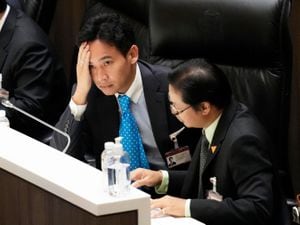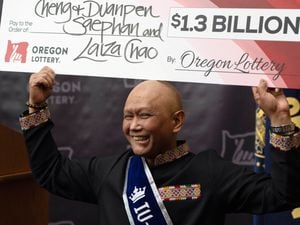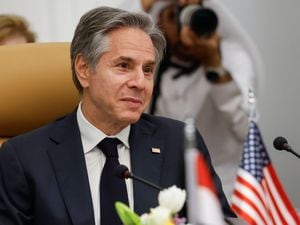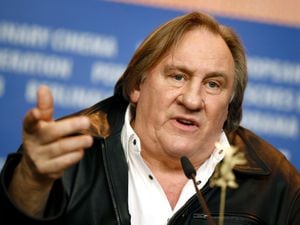Thai parliament blocks leader of party that won election from becoming PM
Move Forward Party leader Pita Limjaroenrat had assembled a coalition of parties holding a majority in the house of representatives.

The bitter battle to name Thailand’s next prime minister has taken a major turn as parliament voted to deny Pita Limjaroenrat, whose progressive Move Forward Party won a surprise victory in May’s election, a second chance to be confirmed for the post.
Mr Pita had assembled a coalition of parties holding a majority in the house of representatives. But his nomination for prime minister was defeated in a joint vote of the house and senate last week, with conservative military-appointed senators mostly refusing their support.
A joint session debated on Wednesday whether Mr Pita could be nominated for a second time, and house speaker Wan Muhamad Noor Matha then put the question to a vote.

A motion to deny him a second chance was passed by a vote of 395 to 312 with eight abstentions, dashing the hopes of Mr Pita’s millions of supporters.
The meeting of parliament was then adjourned with no immediate indication of when it would vote again on a new prime minister.
Thai politics experts said Mr Pita’s fall was virtually preordained by the 2017 constitution, enacted under military rule and designed to undermine challenges to the established royalist order with measures such as giving the non-elected senators a role in confirming prime ministers.
The charter’s specific target was the political machine of billionaire populist Thaksin Shinawatra, who the army ousted in a 2006 coup, but the rules can be used against any threat.

“The 2017 constitution was designed to protect conservative interests in Thai politics, and what we are seeing is the constitution in action. Pita’s fate, or that of any progressive movement, was largely sealed long before this election,” Jacob Ricks, a political science professor at Singapore Management University, said.
It was the second blow suffered by Mr Pita on Wednesday, after the constitutional court suspended him from parliament pending its ruling on whether he violated the constitution by running for office while holding shares in a media company, a charge he has denied.
The court’s announcement would have still allowed Mr Pita’s nomination and selection as prime minister. That is now ruled out by parliament’s action, and Mr Pita remains in legal jeopardy, subject to a possible jail term if the court rules against him.
“The key issue here is that Thailand’s conservative establishment is unable to win power by competing in elections,” Petra Alderman, a research fellow at the University of Birmingham in the UK and author of a book about the military’s authoritarian politics, said.
The junta that took power after a coup in 2014 “created a highly undemocratic political system that is designed to prevent the ‘wrong’ party – in the eyes of the conservative establishment – from taking power”.

“To cover all your grounds, you further empower unelected and highly unaccountable watchdog institutions – namely the election commission and the constitutional court – to make it easier for them to disqualify and/or ban popular politicians and dissolve popular political parties,” Ms Alderman said in an email interview.
Mr Pita, during the debate on whether he could legally be renominated, said he would comply with the court’s order to step down from his parliamentary post.
“I think Thailand has changed, and will never be the same, since May 14,” said Mr Pita, referring to his party’s election victory.
“The people have won half the way. There’s another half left. Although I still won’t get to perform my duty, I’d like to ask all members to help take care of the people from now on.”
“Thank you very much,” he said, before leaving the chamber to the applause of his supporters.





